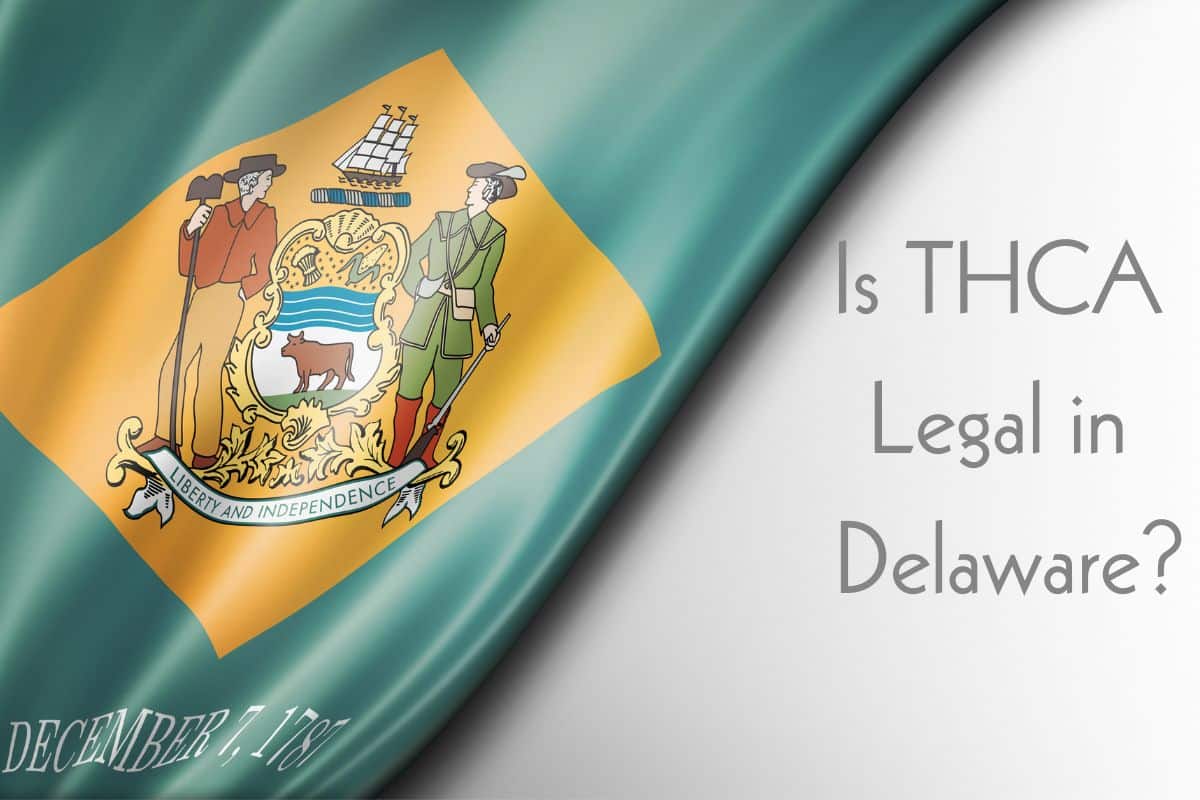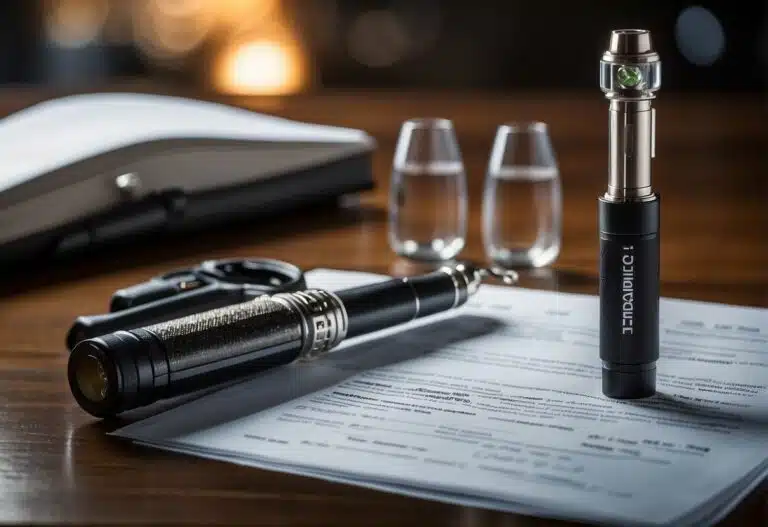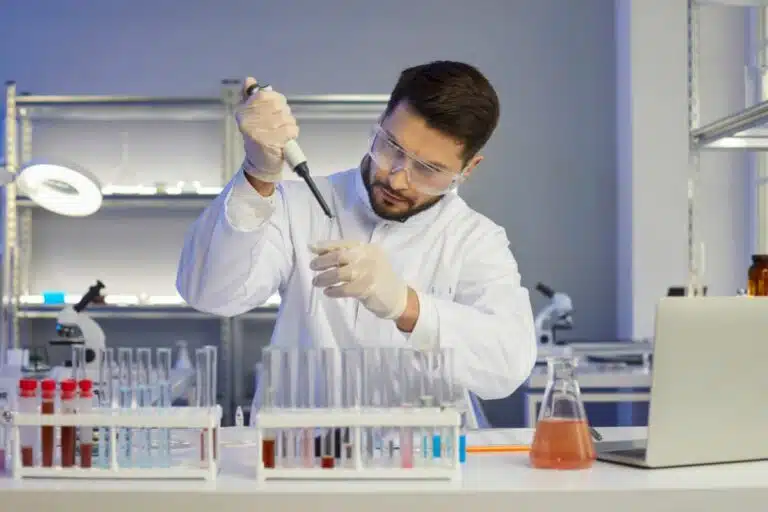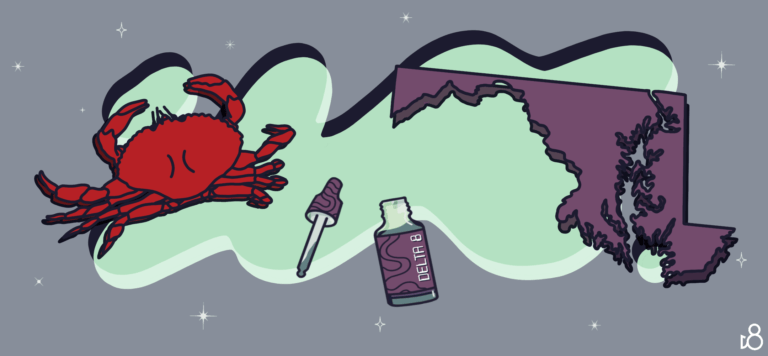Is THCa Legal in Delaware: Understanding the State’s Cannabis Laws
Jump into Delaware’s excitement about **tetrahydrocannabinolic acid (THCa)!** Have you ever found yourself curious about what THCa really stands for? It’s like a smooth operator in the world of weed, staying away from messing with your brain, unlike its famous relative, THC. Yup, THCa keeps things mellow, skipping the mind-buzz. But light it up, and watch THCa magically turn through an awesome method called decarboxylation, changing into the party-goer THC. Stop wondering! You’re about to uncover THCa’s secrets in Delaware, filled with top-notch tidbits that’ll make you the brightest bud in your circle on this subject.
Your interest in the legal status of THCa in Delaware likely stems from the shifting legislative landscape surrounding cannabis-related products. As of the current legal framework, Delaware has legalized medical marijuana, meaning registered patients can legally access cannabis for medical purposes. This shift in policy speaks to a broader national movement toward acknowledging both the medicinal and recreational value of cannabis and its derivatives.
Understanding the exact legality of THCa in Delaware requires navigating the state’s cannabis laws, which are designed to control the use of substances that are psychoactive when consumed. Since the process of decarboxylation can occur during the preparation of cannabis products, it’s important to distinguish between the direct laws governing THCa and those that apply once it’s converted into THC. For a clear perspective on cannabis edibles and their regulations, reviewing comprehensive analysis can be particularly enlightening.
Legality of THCa in Delaware
THCa’s legality in Delaware is nuanced, affected by both state and federal laws. It’s critical you understand the implications depending on how the compound is sourced and used.
State Law Framework
Under Delaware law, cannabis for medical purposes has been legal since 2011, provided you are part of the state-regulated medical marijuana program. Tetrahydrocannabinolic acid (THCa) is a non-psychoactive precursor to THC found in live and unprocessed cannabis plants. Since THCa can be converted into THC, Delaware’s legal perspective categorizes it similarly to THC. This implies that possessing, selling, or consuming THCa without appropriate medical authorization could lead to legal repercussions.
- Medical Use: If you’re a medical marijuana patient, you are legally allowed to possess cannabis, which includes THCa.
- Recreational Use: Currently, recreational use of cannabis or its derivatives, including THCa, remains illegal in Delaware.
Federal Law Considerations
Despite federal law classifying marijuana as a Schedule I substance, Delaware’s state laws govern the legal use of cannabis for medical purposes within state borders. However, it’s vital to note that possession or distribution of THCa could still potentially conflict with federal regulations, particularly if transported across state lines or if it involves large quantities indicative of trafficking.
- Compliance: Ensuring you comply with both state and federal regulations is paramount. Therefore, use or distribution of THCa should strictly adhere to state medical marijuana program guidelines to avoid federal legal challenges.
Understanding THCa

Before diving into the specifics of tetrahydrocannabinolic acid (THCa), it’s important for you to know that THCa is a non-psychoactive precursor to delta-9-tetrahydrocannabinol (THC), the psychoactive component found in marijuana.
| Property | Description |
|---|---|
| Form | Found in raw cannabis, primarily in live or fresh plants |
| Activation | Requires decarboxylation (heat) to become THC |
| Psychoactivity | Non-psychoactive in its raw form, does not induce a “high” |
| Potential Benefits | Limited research, but potential anti-inflammatory, neuroprotective, and anti-emetic properties |
| Methods of Consumption | Found in raw cannabis, can be consumed through fresh juices, smoothies, or as a dietary supplement |
| Interaction with CB1 Receptors | Does not directly bind to CB1 receptors, unlike its decarboxylated form (THC) |
| Legal Status | Generally not regulated or restricted as it is non-psychoactive, but regulations vary by jurisdiction |
Chemical Profile
THCa, or tetrahydrocannabinolic acid, is one of many cannabinoids found in the cannabis plant. Unlike THC, THCa is non-psychoactive, which means it won’t produce the “high” that you might associate with marijuana. It exists naturally in raw and unprocessed cannabis and changes into THC when it is decarboxylated, typically through heat.
- Molecular Formula: C22H30O4
- Molecular Weight: 358.47 g/mol
- Boiling Point: 105°C (220°F) at 0.02 mmHg (decarboxylation)
Key point: THCa is present in the live plant and has different properties and legal status than THC.
THCa vs. THC

When you’re considering THCa versus THC, there are a few critical differences to keep in mind:
- Psychoactive Effects: THC is known for its psychoactive effects. In contrast, THCa does not induce these effects. Instead, THCa may offer therapeutic benefits without altering your state of mind.
- Legal Status: THC is a controlled substance under federal law, although some states like Delaware have legalized it for medicinal or recreational use. Meanwhile, the legal status of THCa is more nuanced and may differ from THC depending on state laws and how it is derived and used.
- Thermal Conversion: Heating cannabis converts THCa into THC through a process called decarboxylation. Smoking, vaporizing, or cooking cannabis initiates this conversion, meaning that you typically ingest THC, not THCa.
Decarboxylation process: THCa → heat → THC
Note: Understanding the legal distinction between THCa and THC in your jurisdiction is crucial, as laws surrounding the two cannabinoids can vary significantly.
Medical Marijuana in Delaware
In Delaware, your access to medical marijuana is governed by specific regulations, and its use is restricted to individuals with qualifying medical conditions as listed by the state.
Regulations
Your participation in Delaware’s medical marijuana program is regulated by the state’s Department of Health and Social Services. You must obtain a medical marijuana card, which necessitates a physician’s certification that you have one of the qualifying conditions. The state law allows registered patients to possess up to six ounces of medical marijuana, but public consumption remains prohibited. Additionally, home cultivation is not permitted, so you need to obtain your medicine from licensed compassion centers.
Qualifying Conditions
To qualify for a medical marijuana card in Delaware, you must have a diagnosis of one or more of the following conditions:
- Terminal illness
- Cancer
- HIV/AIDS
- Decompensated cirrhosis
- Amyotrophic lateral sclerosis (ALS)
- Agitation of Alzheimer’s disease
- Post-traumatic stress disorder (PTSD)
- Autism with self-injurious or aggressive behavior
- Glaucoma
- Chronic debilitating migraines
Other conditions, like severe and persistent muscle spasms, are also included under the medical marijuana program, ensuring that a wide range of patients can potentially find relief through the use of cannabis under the supervision of a healthcare provider.
THCa Regulation Beyond Delaware
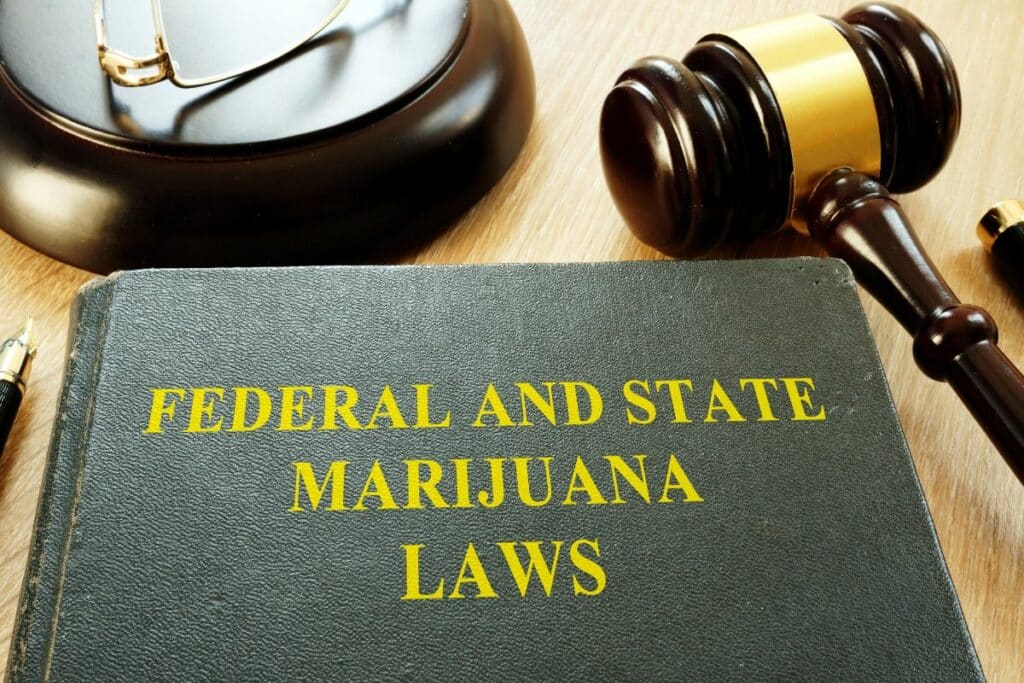
When exploring the legal status of THCa, you’ll find variations from state to state. Each jurisdiction has its own approach to cannabis and its compounds, including THCa.
Comparison with Other States
While you might be familiar with the regulations in Delaware, it’s important to recognize that other states have their own sets of rules. Generally, the legality of THCa hinges on the overall legal status of cannabis within a state. For instance, if cannabis is fully legal for recreational use, THCa is typically lawful as well. Conversely, in states where cannabis is illegal or only allowed for medicinal purposes, THCa may fall under the same restrictions. Remember, these regulations can be complex, as they sometimes differentiate between the plant form and its derivatives.
Michigan’s Stance on THCa
In Michigan, state law reflects a more progressive stance on cannabis and its derivatives. Cannabis is legal for both medical and recreational use. Consequently, THCa, a non-intoxicating precursor to THC found in the plant, is also legal. This extends to various forms of cannabis, as Michigan regulates the conversion and concentrations of THCa in products. This ensures that you can possess and use THCa within the parameters set by Michigan’s regulatory framework.
Implications for Consumers
Understanding the legal landscape of tetrahydrocannabinolic acid (THCa) in Delaware is essential for you as a consumer. It is critical to know the legal restrictions and guidelines for purchasing and possession to remain compliant with state laws.
Legal Restrictions
In Delaware, THCa is not regulated separately from other cannabinoids derived from the cannabis plant. Since Delaware has legalized medical marijuana, you, as a qualified patient, may access cannabis products, including those containing THCa, through state-licensed dispensaries. However, for recreational use, possession of marijuana and its derivatives remains illegal. This means without a medical marijuana card, possessing THCa in any form could lead to legal repercussions.
Purchasing and Possession
For medical marijuana patients, purchasing products containing THCa is permissible within the state-sanctioned dispensaries. You can possess up to 6 ounces of medical marijuana, although the specific limits on THCa are not clearly outlined separately. Remember, any purchase outside of these dispensaries, or possession beyond the legal limit, even if for medical purposes, places you at risk of violating state law. Always carry your medical marijuana card to validate your right to possess THCa-containing products.
Impact on Social Media and Advertising

As you explore the legal landscape of THCa in Delaware, it’s crucial to understand how this affects what you can and can’t do on social media and through advertising.
Promotional Restrictions
In Delaware, the promotion of THCa products on social media platforms must adhere to strict guidelines. You cannot advertise THCa in a way that might appeal to minors, which means avoiding any imagery or language that resembles youthful culture, cartoons, or popular children’s characters. Key Point:
- Age Verification: Ensure your social media profiles have robust age-verification methods to prevent marketing to minors.
Social Media Compliance
Your compliance on social media with respect to THCa is non-negotiable. Plainly put, you must regularly monitor your content to ensure it aligns with both Delaware law and the specific policies of each social media platform.
- Platform Policies: Each platform has its own rules about advertising THCa, even if it is legal in Delaware. Be sure to review and understand these policies to avoid any penalization or account suspension.
- Claims: Steer clear of making any unverified health claims about THCa in your social media posts, as this is a common area of contention that can attract unwanted legal scrutiny.
Frequently Asked Questions
In this section, you’ll find specific information about THCa in Delaware, addressing legalities, restrictions, comparisons with other states, possible effects, testing protocols, and medicinal usage.
What are the legal requirements for possessing or selling THCa in Delaware?
In Delaware, THCa is classified under the controlled substances act because it is a precursor to THC, the psychoactive component of cannabis. Selling or possessing THCa without the proper licensing can lead to legal repercussions.
Are there any restrictions on shipping THCa products to Delaware?
Yes, shipping THCa products to Delaware is subject to state and federal laws. As it stands, THCa is categorized similar to THC and therefore cannot be legally shipped into the state unless complying with Delaware’s medical marijuana program regulations.
How does Delaware legislation compare with other states regarding the legality of THCa?
Delaware’s stance on THCa is stringent, in line with federal regulations. This contrasts with states that have legalized cannabis for recreational use, where residents may possess and use THCa within the state’s regulatory framework.
Are consumers at risk of psychoactive effects from using THCa products in Delaware?
THCa itself is not psychoactive. However, when heated, THCa converts to THC, which is psychoactive. Thus, consuming THCa products in a manner that promotes this conversion may lead to psychoactive effects.
What are the consequences of testing positive for THCa in a drug test in Delaware?
Testing positive for THCa in Delaware can have significant implications, including legal penalties, employment consequences, or breaches of compliance with Delaware’s medical marijuana program for registered patients.
Does Delaware law allow the use of THCa for medicinal purposes?
Delaware permits the use of medical marijuana for qualifying patients under its medical marijuana program. As THCa is a component of cannabis, its use is allowed within this context, provided patients follow the state’s regulations.

